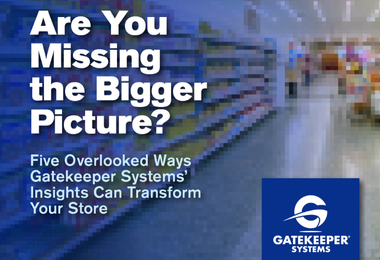The escalation of retail theft isn’t just about lost revenue; it’s a growing threat to the safety and security of employees and customers alike. It’s negatively reshaping the shopping experience, casting long shadows over what was once considered safe community spaces. As we delve deeper into the causes behind this uptick, from policy implications to systemic challenges, it becomes clear that addressing this issue requires urgent and collective action.
Retail Policies on Non-Confrontation
To ensure the safety of its employees and customers, many retailers have adopted non-confrontation policies, instructing staff not to engage directly with shoplifters. This stance, while prioritizing safety, unfortunately, may embolden thieves, knowing that their actions will likely go unchallenged in the moment. The impact of such policies, though well-intentioned, can lead to increased losses and potentially foster an environment where theft becomes more rampant.
The Impact of Felony Thresholds
Organized retail crime (ORC) groups expertly navigate the nuances of the legal system, specifically targeting their activities to exploit the felony theft thresholds. By keeping their thefts below these legal benchmarks, criminals can avoid more severe penalties, making theft a relatively low-risk but high-reward endeavor. This manipulation of legal thresholds has highlighted the need for legislative reform to address and adapt to the tactics of these organized crime groups and for solution providers to enable retailers to track multi-incident offenders.
Strained Law Enforcement Resources
The allocation of law enforcement resources has a direct impact on the ability to combat retail theft and violence. With police forces often underfunded and overstretched, petty crimes like shoplifting may not be prioritized, leading to a lack of immediate response and a cycle of recurring criminal activity. This situation not only bolsters criminals but also challenges retailers to seek alternative solutions for store security and loss prevention.
A Burdened Judicial System
The increase in retail theft and related violence comes at a time when the judicial system is already under significant strain. With courts overwhelmed by the sheer volume of cases, including those related to ORC, there’s a pressing need for systemic reforms. Retailers are advocating for not only stronger ORC legislation at the federal level but also for more effective enforcement of existing laws to deter these crimes. The push for policy reform is crucial in addressing the root causes and providing long-term solutions to this growing threat.
The situation calls for a multi-faceted approach, combining policy reform, enhanced security measures, and public-private collaborations to effectively combat the rise in theft-related violence in the retail sector. Retailers are investing in technology and resources to protect their customers and employees, but it’s clear that tackling this issue requires support from all stakeholders, including lawmakers and law enforcement.
Download Here




